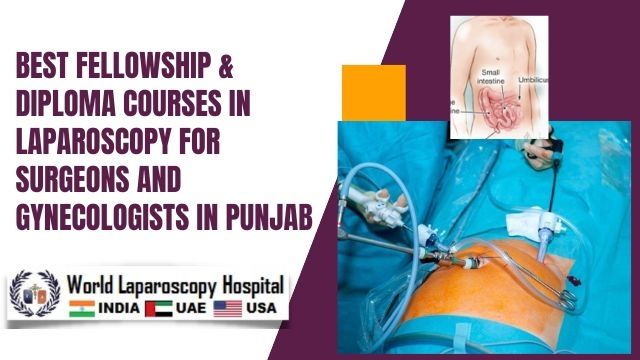
Laparoscopic Surgery Training in Punjab – Learn from India’s Leading Experts
Punjab: The Land of Courage, Compassion, and Cutting-Edge Surgery
Punjab — the land of five rivers — has always been a symbol of courage, resilience, and growth. Known as the breadbasket of India, Punjab has fed the nation for decades and nurtured a spirit of enterprise and excellence among its people. From the fields of freedom struggle to the forefront of modern industry, Punjab has consistently been a beacon of leadership, innovation, and service to society.
Why Punjab is Special
-
Rich Cultural Heritage – Punjab’s vibrant culture, music, and traditions create an environment of warmth and hospitality. Surgeons visiting Punjab are welcomed with open arms and made to feel at home.
-
Thriving Healthcare Infrastructure – Punjab has some of the best hospitals, tertiary care centers, and private practices that provide world-class patient care.
-
Spirit of Service – Punjabi doctors are known for their compassion, hard work, and willingness to adopt new technology for better patient outcomes.
-
Excellent Connectivity – With Chandigarh, Amritsar, and Ludhiana as major hubs, Punjab is well-connected by air, rail, and road, making it easy for surgeons from across India and abroad to travel for training.
Punjabi Doctors: Leading from the Front
Punjabi surgeons and gynecologists have always been early adopters of advanced surgical techniques. Their commitment to excellence ensures that patients in Punjab receive modern, safe, and minimally invasive solutions. The state is home to many pioneering surgeons who have introduced laparoscopic and robotic surgery to semi-urban and rural populations — truly democratizing access to advanced healthcare.
Why Learn Laparoscopic Surgery in Punjab
Training in Punjab offers a unique blend of:
-
High Surgical Volume: Observe and assist in a wide variety of laparoscopic cases daily — from gynecological procedures like TLH, myomectomy, and ectopic pregnancy surgeries to general surgical procedures like cholecystectomy, hernia repairs, and appendectomy.
-
Hands-On Experience: Get immersive exposure with real cases, dry lab practice, and wet lab training.
-
Expert Faculty: Learn from surgeons who are globally recognized for their expertise, publications, and teaching.
-
Affordable and Accessible: Punjab offers cost-effective training options with excellent accommodation, food, and cultural experiences.
-
Cultural Immersion: Experience the energy of Bhangra, the spirituality of Golden Temple, and the warmth of Punjabi hospitality — making learning a memorable journey.
The Call to Action
Laparoscopic surgery is no longer the future — it is the present standard of care. Surgeons and gynecologists from Punjab have the opportunity to lead the way by upgrading their skills and offering their patients smaller incisions, faster recovery, and better outcomes.
Join us in Punjab and become part of a movement that is transforming surgery in India. Together, we will write the next chapter of surgical excellence.
Advantages of Laparoscopic Training in Developing States of India
Minimally invasive surgery is transforming healthcare worldwide, and India is no exception. In developing states such as Punjab, Haryana, Bihar, Uttar Pradesh, Madhya Pradesh, Odisha, and the North-Eastern regions, laparoscopic surgery is rapidly gaining ground. Surgeons and gynecologists practicing in these states now have an opportunity to upgrade their skills and deliver world-class care without having to migrate to metro cities.
1. Improved Access to Advanced Surgical Care
Laparoscopic training programs in developing states help bridge the healthcare gap between urban and rural areas. By equipping local surgeons with modern techniques, patients no longer need to travel hundreds of kilometers to metro cities for laparoscopic procedures. This reduces delays in treatment, improves surgical outcomes, and enhances patient satisfaction.
2. Affordable Training Close to Home
Most developing states now offer fellowship and diploma programs at fraction of the cost of similar programs abroad. Surgeons can save money on travel, lodging, and course fees, making skill development accessible and sustainable.
3. High Surgical Volume for Hands-On Experience
Developing states often have large patient inflows with diverse surgical pathologies. This means trainees get to observe and perform a wide variety of cases — from common procedures like laparoscopic cholecystectomy and hernia repairs to complex TLH, myomectomy, and appendectomies — all within a short training duration.
4. Strengthening Local Healthcare Systems
When surgeons and gynecologists learn advanced skills locally, they stay and practice in their own states. This helps create regional surgical hubs where patients can receive quality care without needing to travel far, ultimately reducing the burden on tertiary care centers in metro cities.
5. Skill Retention and Peer Networking
Training in one’s own state encourages collaboration with local peers, enabling surgeons to share cases, discuss complications, and continue learning even after the course ends. This peer network becomes a lifelong support system for clinical decision-making and patient referrals.
6. Cultural and Language Comfort
Learning in a familiar environment with trainers who understand local languages and patient expectations allows participants to focus on skills rather than adjusting to a new culture or communication barrier. This makes the training experience smoother and more effective.
7. Boosting Confidence and Reputation
Surgeons who complete advanced laparoscopic training in their state gain recognition in their local medical community. This not only boosts professional confidence but also attracts more patients who prefer modern, minimally invasive options.
8. Driving Socio-Economic Growth
Better surgical outcomes mean faster patient recovery, reduced hospital stays, and earlier return to work. This contributes to local economic growth, as healthier populations are more productive.
Conclusion
Laparoscopic training in developing states of India is not just about upgrading surgical skills — it is about transforming healthcare delivery, reducing inequality, and empowering surgeons and gynecologists to provide state-of-the-art treatment to their communities.
If you are a surgeon or gynecologist practicing in Punjab, Bihar, Uttar Pradesh, or any other developing state, now is the perfect time to invest in yourself and your patients by enrolling in a comprehensive laparoscopic training program.





